Lake Victoria beset by environmental problems
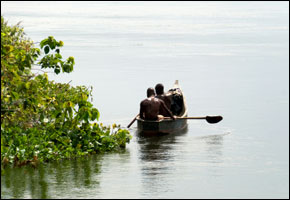
Kisumu, Kenya – Lake Victoria, the largest freshwater lake in Africa, is shrinking, dropping some six feet in the last four years. Over 30 million people in three East African nations depend on the lake’s water for their livelihoods and biologists fear that if the overdraw from the lake doesn’t decrease, Victoria could surfer from serious ecological problems.
Read more here.
Source : San Fransico Chronicle
Circle of Blue recently profiled another dying lake in Africa: Lake Chad.
Circle of Blue’s east coast correspondent based in New York. He specializes on water conflict and the water-food-energy nexus. He previously worked as a political risk analyst covering equatorial Africa’s energy sector, and sustainable development in sub-Saharan Africa. Contact: Cody.Pope@circleofblue.org

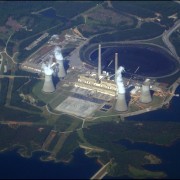
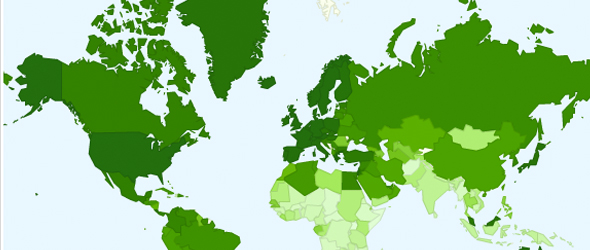

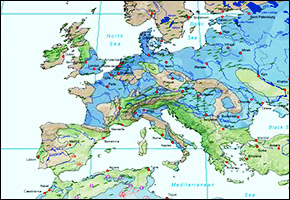
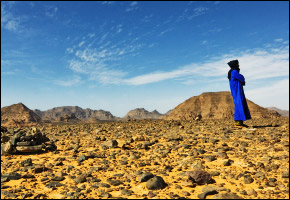



All across Africa, infestations of aquatic weeds are the root cause of many troubles. In Lake Victoria, the predominate weed is water hyacinth, which is an invader. In Lake Chad, it is Typha Australis, a native cattail. Their resilience makes control a never ending process, one that needs a profit to be sustained. The profit is available in fuel, fiber, and in some places food. Food use requires caution. Aquatic weeds collect toxins like a miser hoards gold. Water hyacinth fiber has been used for many purposes ranging from mats to wicker furniture. Water hyacinth biomass has been successfully digested into biogas, and can be compressed into biomass briquettes, burned as fuel in one of the new gasifier stoves with charcoal as a byproduct. Aquatic weeds are a major driving force in worldwide desertification. They are dessication and siltation machines.